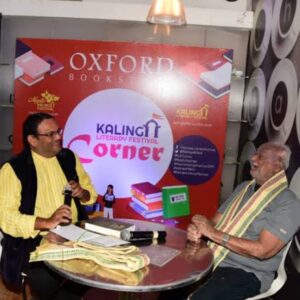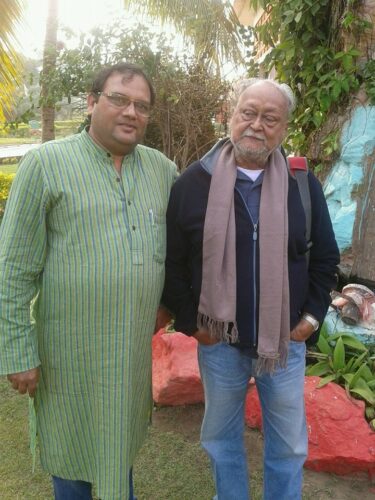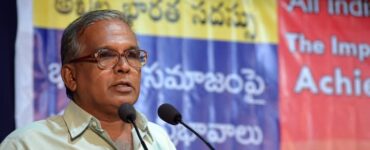On 8th August Jayanta Mahapatra was sitting on his hospital bed and happily released his last poetry book in Odia titled “Jhanji”- the Sunstroke. On 27th August evening he is gone forever. He was 95. In between his last book and the death, there remained vital question-who was Jayanta Mahapatra? The world knows him as one of the master craftsmen of Indo-English poetry, but all his life he wanted to be an Odia poet. He was an Odia speaking English poet and incidentally he blended his mother tongue with English, a language of former colonial rulers.
Jayanta Mahapatra published his first Odia poetry collection “Bali” (the sacrifice) in 1993. When his first Odia poetry collection was published, he had been known to be a pioneering voice in Indian English poetry having more than a dozen of titles in his name. He was the first Indian poet writing in English to be awarded with the Sahitya Akademi award. Despite his prominence in the field of English poetry, it was important to know why he was so desperate to express himself in his mother tongue and what inspires him to publish his first poetry collection in Odia at the ripe age of 64.
All his life Jayanta Mahapatra identified himself as an Odia poet writing in English and ultimately writing in Odia fulfilled his dream to become a complete Odia writer. His comfort zone was basically his own life and perhaps he was the only Odia poet who had written maximum numbers of autobiographical poems both in Odia and English. In that context his last poetry collection is explicitly personal, and it talks more about the anger, anguish and aspiration. Surprisingly Jayanta Mahapatra chooses politics to be the driving force of poems in his last poetry collection.
Neruda in his poem “poetry” categorically said- “poetry gives glass quality to glass/blood quality to blood / and life to life itself. It was Jayanta Mahapatra’s life as it is reflected in his poems. There are few poems in this collection which talks more about his political reactions. In his long poetic career, he used to avoid politics as theme or motivational spirit of the poetry. Somehow the last collection is a rupture and his political stand as a democratic free citizen erupted as a new poetic craft.
 In the year 2015, he returned the civilian honour “Padmashree” as a token of protest against growing intolerance and communal hatred in the country. Consequently, he was bulldozed by the supporters of ruling class with hate mails, threatening calls and brutally trolled in the social media. The reaction of political class confirmed the very idea of social intolerance and that shattered Jayanta Mahapatra as a poet and as a man. His last poetry collection is a fitting reflection of the political turmoil faced by the country and as well by a helpless citizen.
In the year 2015, he returned the civilian honour “Padmashree” as a token of protest against growing intolerance and communal hatred in the country. Consequently, he was bulldozed by the supporters of ruling class with hate mails, threatening calls and brutally trolled in the social media. The reaction of political class confirmed the very idea of social intolerance and that shattered Jayanta Mahapatra as a poet and as a man. His last poetry collection is a fitting reflection of the political turmoil faced by the country and as well by a helpless citizen.
Before his death he sang the bravest song of human liberation, social justice and empathetic humanity in his poetry. The soft and kind Jayanta Mahapatra rearranged his poetic sensibilities as a firebrand poet of protest.
*









Add comment